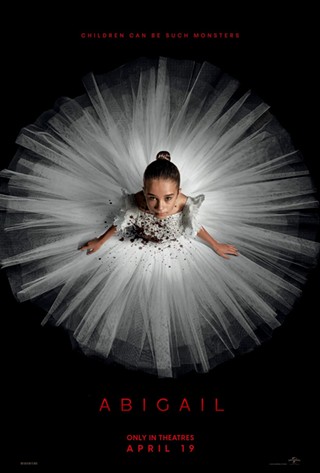Although it's not so much about that as it is about everything else. See, there's a difference between films with a plot and films with a concept. In a concept film, the entire story can be told in one or two lines: Giant alien space ships attack every major city on Earth. If a bus slows down, it will explode. There's a plane, and snakes are on it.
In films with a plot, there's no way to sum up the story, because it unfolds over the entire course of the film, until, only at the end, can we say what the movie was about.
Just as it would be wrong to say that Citizen Kane is a movie about a man who can't hang on to his snow globe, it's wrong to say The Aura is a movie about a guy who plans to rob a bank. Aura's plot is hardly this simple. In fact, the expected story not only never comes to pass; a much more interesting one overtakes it and says, "Hey, that story you were expecting? It would have sucked."
The taxidermist, Esteban Espinoza, is played by Ricardo Darín with the resigned sadness of a 9-year-old boy who's just been beaten up by a 7-year-old girl.
After telling his friend Sontag (Alejandro Awada) about his bank-heist plan, Espinosa goes home to find that his wife has left him, so he joins Sontag for a deer-hunting excursion in Argentina's high forests.
But the story is not about the hunting trip, either. Instead, Espinoza falls into a shady deal involving a dead German, the German's beautiful young wife, two thugs, a pickpocket and a dead guy, as well as any number of events which would ruin the film if I were to relate them.
Which is the problem with plot-oriented films: A concept movie is easy to review, because you can't give anything away, since there's nothing of any interest beyond the one-line description. Strongly plot-based films, however, while susceptible to subtle critique, are impossible to review, because everything of significance--all the events that hold the film together--work only if you don't know they're coming.
But I can say this: The film is successful on two distinct levels. The actual working out of the story is cohesive and satisfying, with each new moment building on what went before. And the taxidermist's identity is both tested and explicated by the story, with his psychological makeup revealed to the audience at the same moment that it's revealed to the character. So as Espinoza's idea of himself comes into conflict with the reality of himself, an inner tale is created by external events.
Those external events are also beautifully portrayed, so that even when it's not clear that anything significant is happening, the sun filtering through the trees, boots stamping on the grass and the fleeting image of a deer appearing and disappearing in the thick woods is richly captured by cinematographer Checco Varese.
Varese and director Fabián Bielinsky manage to make beauty itself into an informative aspect of the film. It's not just that the shots reveal exactly what needs to be seen in order to produce character and develop plot, but the quiet intimacy and vastness of the woodland scenes in and of themselves tell us more about who Espinoza is than anything the character says.
It's enchanting to see a film that has enough respect for its audience to move with a determined pace, dropping clues and littering its path with fragments of story that we have to hold on to in order to grasp the whole. But it's even better when those fragments are impressed on the audience's inner eye by the balanced and forceful composition of the shots. That Varese and Bielinsky did so without unnecessarily punctuating these moments with excessive and emphatic zooms or rising chords of music marks them as artists.
In fact, the sound design should receive co-starring status in this film. While the music by Lucio Godoy is perfectly moody and evocative, some of the best moments occur with only the crunching of leaves as the soundtrack. The quiet of the film is mirrored in Darín's very subtle performance. His Espinosa is flattened and beaten down by life, and Darin evinces this with tiny betrayals of feeling in his face on the rare occasions when he chooses to speak.
On the whole, this film satisfies as both a Hitchcockian thriller and psychologically compelling character study. While Bielinsky's only other feature, Nine Queens, showed interesting promise and the ability to craft a tale, this one cashes in on that promise with so much more depth that it's hard to believe they're by the same man.
And it's even harder to believe that, with his death last year, these will be the only films he'll ever make.













